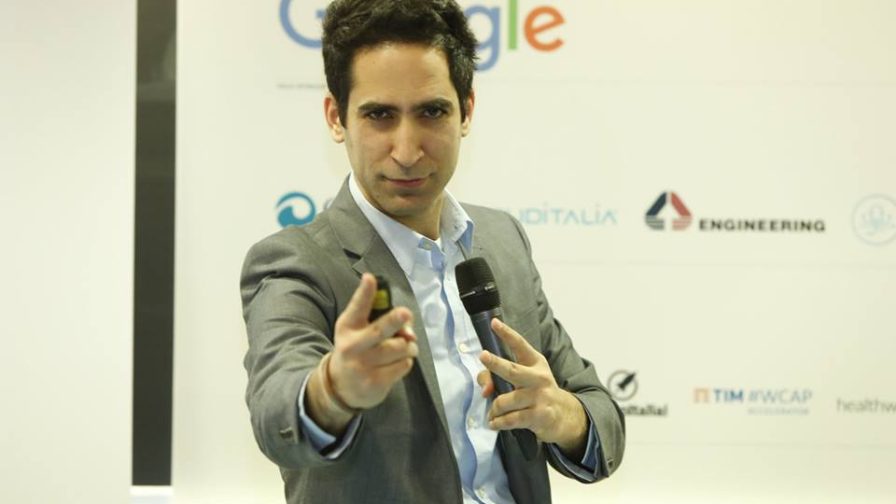
The advent of any advance in technology raises doubts about its dark side. Every technology can be used both for the good and for the bad, and there is no way to plan how it will deploy. Privacy, whatever you call it, is the main concern of our time when law enforcement fades approaching national and cultural boundaries.
We had the chance to talk about this main topic with Menny Barzilay, just before the event “Future of Privacy, organized by the Rome Chamber of Commerce on October 30, 2018. Menny is a strategic adviser to leading enterprises around the world, startup companies as well as States and Governments, and the co-founder and CEO of FortyTwo Global, Cyber Security Professional Global Services in Israel.
Privacy Winter is coming
“Winter is coming”, states Barzilay, recalling the chosen tagline for Game of Thrones, the medieval TV series after George R.R. Martin’s book “A Song of Ice and Fire“. Winter is a metaphor for the time when bigger problems need to be fronted by a divided world, and White Walkers are the stronger-than-law bad guys that want to steal our identities.
Our privacy is being used and manipulated to make decisions that otherwise could not be taken, but we can’t control those actions
“I’m sure that third-party actors are acting through articles, videos, and more, to make me change my mind on some subjects”, states the former CISO in the intelligence services of the Israeli Defense Forces.
We don’t own insights about us
Most parts of the menaces are not well understood today. We normally fear that the data we produce about us could be stolen, revealing our secrets. This is only the first skin of the problem. A deeper skin is related to the insights that can be deduced by that data.
“The problem arises when somebody owns these insights about me without using my data, but the data about me given by somebody else”. This could happen both directly (social network) or indirectly (smartwatches, cameras).
“If by analyzing my data somebody knows that I’m sick, or I’m avoiding some people, or that I’m cheating on my wife, I don’t want them to have ownership of these conclusions”. Moreover, these insights can help companies to force us to behave in a predictable manner thanks to manipulative psychology: nothing different from the way goods are on display on supermarket shelves but at a different level.
My number one tip is: never put something online that could be private, not even in emails. Nothing that, if discovered one day, could be devastating for either you or your loved ones.
This could help us at a first level, but not anytime nor everywhere. There is a huge number of data-capturing devices today: cars, trains, planes, ships, pacemakers, insulin pumps, factories…
Internet of Witnesses
But there is even more than this. Many data about us are published by other people. “If my girlfriend writes on Facebook that she’s gonna break with me, Facebook knows I’m gonna have this experience, and I really don’t want them to know this: I cannot claim ownership of these data”. This is the third layer.
There is one more layer, at least: how much about us is captured, recorded, and often published unconsciously by other people? Connie Dabate was murdered by his husband Richard in 2015, but the evidence was given by her smartwatch. More recently, Karen Navarra was stubbed in her house, and her smartwatch data revealed that her stepfather, Antony Aiello, lied about the facts. Fitness-related devices are witnessing in many cases, revealing things related to other people. There is a need for enforceable actions.
Is Gdpr one enforceable action?
Everybody remembers Edward Snowden’s action. He revealed an impressive quantity of NSA classified documents on May 20, 2013. The world has changed since, and Europe tried to manage the change also through the Gdpr, General Data Protection Rule.
“Gdpr is an answer to what Snowden did, at a certain extent”, says Menny. “The regulators tried to address the problem of data ownership in a good way. Gdpr redefines data ownership in order to allow you, not companies, to own your data”. “Some very good things are happening thanks to Gdpr”, says Menny.
I think Gdpr missed an important point: it’s not about data,it’s about the insights that you get from your data.
It seems that we failed with detection today, so we need a wider security strategy now. What we need is investing in a multi-dimensional cyberdefense strategy.
We all are Programmable People
All of these witnesses, from social media to IoT, produce minable data, often in our privacy area. This is a necessary condition for our minds to be manipulated.
One condition applicable to privacy mining is a cognitive bias. “Our parents told us we’re special, different to any others”, disrupts Menny, “but that’s a lie: all people are very much alike”.
We all react more or less the same to external stimuli, allowing somebody to generate insights about us.
Selling access to the data and the insights allows to push us to behave as somebody else wants.
Cognitive biases, plus privacy mining, plus 3rd party access to platforms could make us programmable people.
That’s what privacy is all about.



